According to the most recent Stats SA Quarterly Labour Force Survey, South Africa's unemployment rate in the first quarter of 2023 stood at 42,4% based on the expanded definition.
While this figure represents a slight improvement (+0.2%) over Q4:2022, the deepening employment crisis caused by multiple global and local economic headwinds continues to disproportionately impact South African youths.
In the first three months of 2023, unemployed South Africans aged between 15 and 34 increased by 241 000 to 4.9 million, effectively increasing the youth unemployment rate to 46.5% in the first quarter.
Rural unemployment a dire situation
Yet these startling figures paint only half the picture, as the situation in rural areas is more dire. Touws River (Touwsrivier) in the central Karoo, once an economically thriving town along the main Cape Town to Kimberly railway line, is one of the more egregious examples, as most of the town’s roughly 8,000 inhabitants live under the breadline.
When the railway line fell into disrepair due to disuse, underinvestment and a transition to road freight, the Touws River community became impoverished.
An estimated 85% of those who live in the town today do not earn an income. Those who do rely almost exclusively on seasonal citrus fruit farming in the nearby De Doorns area from November to March.
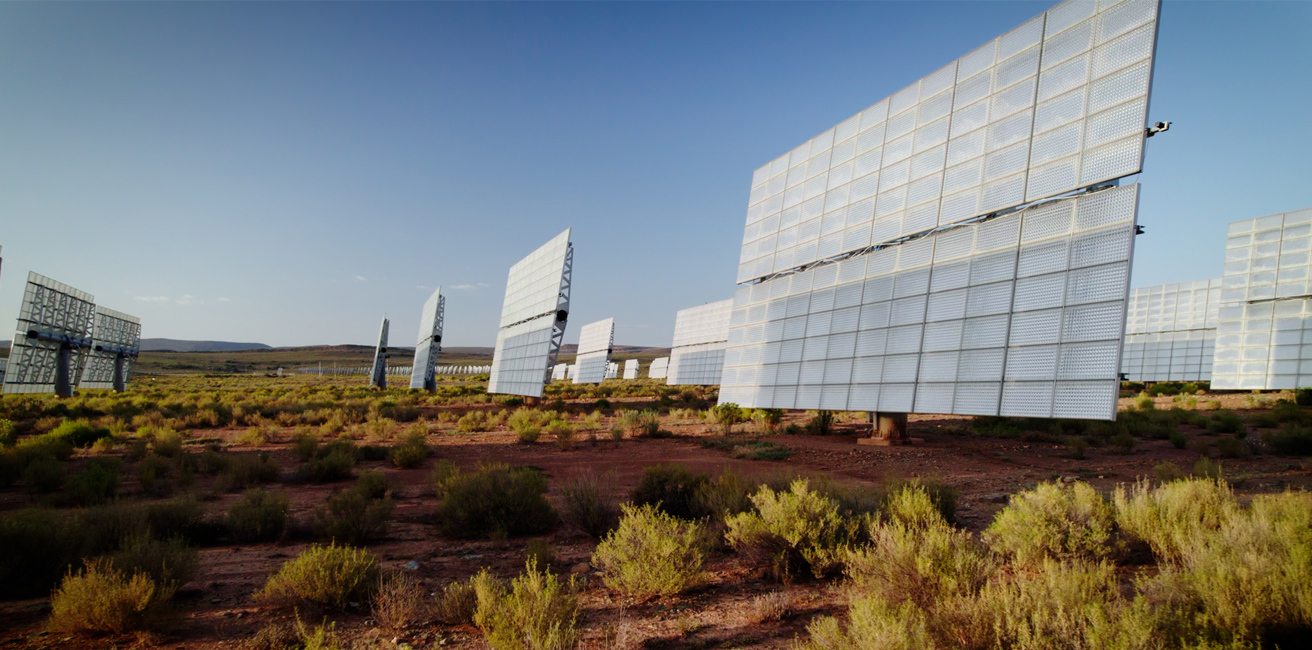
A 36 MW CPV1 Renewable Energy Independent Power Producer Procurement Programme (REIPPPP) solar power plant in Touws River.
Private sector investment delivers broad impact
With little government support in the town, the private sector has stepped in to help address the unemployment and unfolding hunger crisis, with Investec Bank and its commercial and developmental enterprise partners taking on the mantle to spark the economic revival needed to uplift this community.
Investec is maximising the impact of a commercial investment in a solar concentrator photovoltaic (CPV) in the area with an accompanying enterprise development investment. Touws River is the host community for a the 36 MW CPV1 Renewable Energy Independent Power Producer Procurement Programme (REIPPPP) solar power plant developed by Pele Green Energy.
Investec provided group-level acquisition funding to help Pele Green Energy secure a 35% stake in the CPV1 project in 2011. As one of the first REIPPPP projects to go live, CPV1 has been feeding electricity into the national grid to augment the shortfall from Eskom's predominantly coal-fired power generation fleet since 2015.
“We are really connected to the community because the community hosts us,” explains Fumani Mthembi. MD at Knowledge Pele, the socio-economic development arm of the Pele Energy Group.
“We see this asset as a catalyst for development in this community. Many employees at the site came from Touws River, and we have a genuine sense of social responsibility towards those who live there.”
Creating enduring economic impact
While the asset has the ability to create jobs and support downstream activities, the lifecycle of solar projects does not typically generate a large number of long-term employment opportunities after the construction phase.

Knowing that we would form part of the community for 20 years, it was imperative that we created other opportunities to build enterprises and industries that would have positive knock-on effects.

“After our corporate banking team financed the asset, Pele approached us to fund some development opportunities in the Touwsrivier community,” explains Margaret Arnold, who oversees enterprise development initiatives for Investec.
“Communities around solar plants are typically very remote, with very few opportunities available for people who live in these areas. It was an absolute no-brainer for us to see how we could blend our commercial investment with a developmental aspect to generate greater impact for the community.”
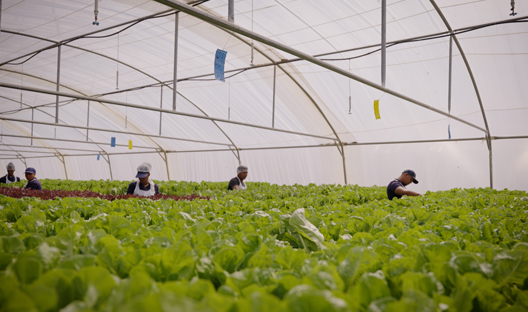
Technologically-enhanced farming
Investec Bank provided a R5-million grant fund, which Knowledge Pele deployed to develop the Touwsrivier Commercial Hydroponics Farm (TCHF).
“We chose hydroponic farming because it is highly sustainable, using less water and land than conventional farming to reduce the environmental impact. The technology also provides a high degree of certainty in crop supply and quality,” explains Mthembi.
“Importantly, we chose an asset that was aligned to the skills profile of the community so that we could create jobs.”
Generating impactful social return
The farm is owned by Knowledge Pele and the Touwsrivier Solar Community Trust, in which 50% of equity is held by the community. This ownership structure provides an impactful social return on investment for the community coupled with financial income that seeks to uplift households.
The TCHF produces over 4,000 kg of leafy green vegetables a month, focusing mainly on seven types of lettuce. The farm has off-take agreements in place with reputable retailers and plans to erect additional tunnels to expand the operation once additional funding is secured.
“We wanted to build something that was technologically advanced and would meet numerous Sustainable Development Goals by creating industrial and social infrastructure, while also working in the local context,” elaborates Mthembi.
The TCHF project initially employed 19 people from Touwsrivier, with Investec’s Youth Employment Service (YES) program paying all farm workers who were under 35 for the first year.
There are now 12 community members from Touwsrivier permanently employed at the TCHF, five of which have come from the Investec YES program, including Theodalene Bosman, who manages quality control.
"I learned all of my horticulture and hydroponics skills during my Investec-funded YES internship program. I am now part of the process of getting food to my nation, and I don't think there is anything more honourable than that."
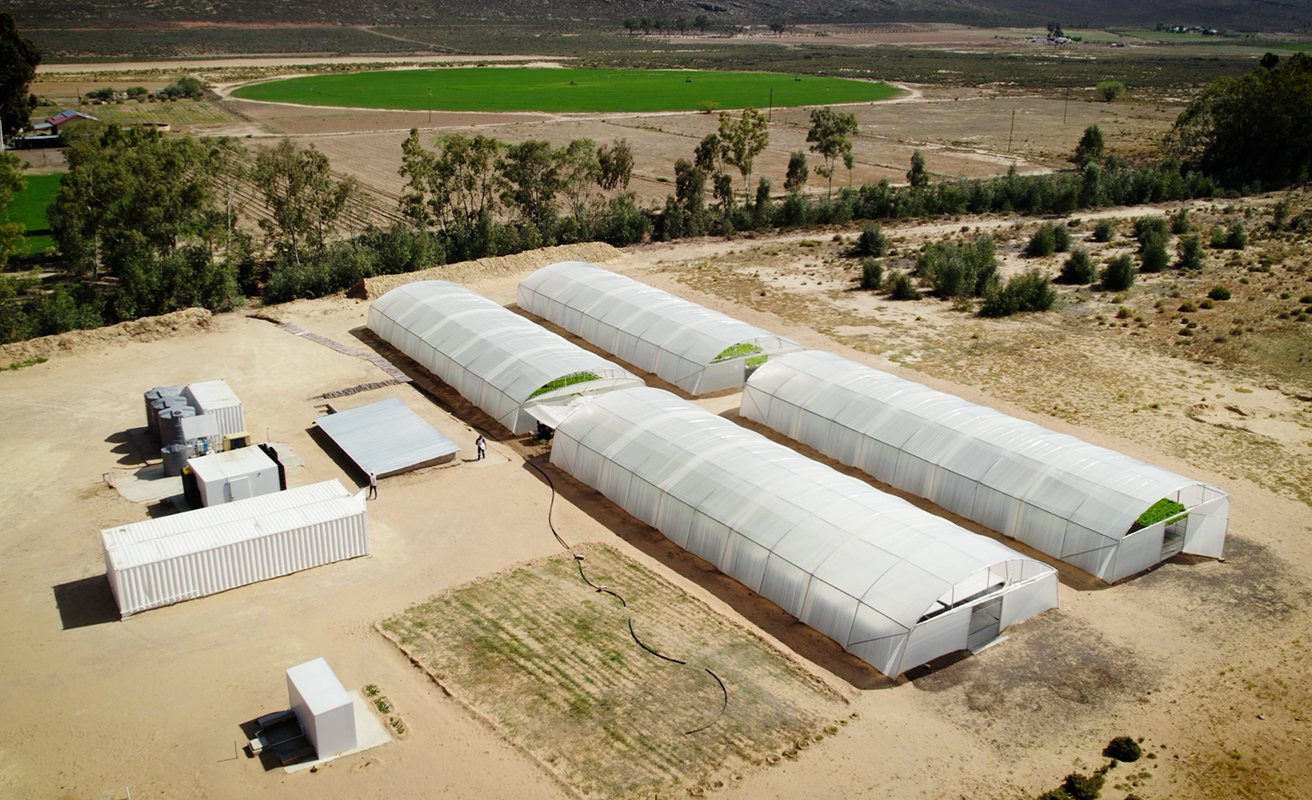
The Touwsrivier Commercial Hydroponics Farm (TCHF) produces lettuces for the retail market and donates extra to the community
“Employment at TCHF has given me a measure of economic freedom, providing income that has enabled me to complete a course and support my son. The farm has opened so many doors for me and it continues to open new avenues by broadening my perception of agriculture. I am looking into starting a little business.”
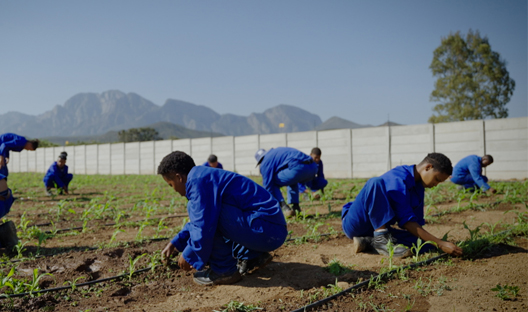
Extending reach for greater inclusivity
To extend its social impact in the area, Investec also sponsored 30 learnerships for interns at the National Institute for Development and Training (NID), who are all from Touws River.
“The institute was established to address the 85% unemployment rate amongst people with disabilities,” explains NID CEO Dr. Lientjie van Rensburg.
The NID aims to change lives through the holistic development of people with disabilities, with a focus in rural areas where the organisation trains beneficiaries and then connects them with workplaces in the corporate industry. To date, 75% of the youth that finish the programmes at the institute find employment.
“For the Touws River community, we have selected programmes where there is job opportunities, including the agriculture, hospitality and IT sectors,” explains Dr. van Rensburg.
A replicable model for impact
“The farm is also a valuable asset to the community because it’s an example of a sustainable enterprise,” elaborates Arnold.
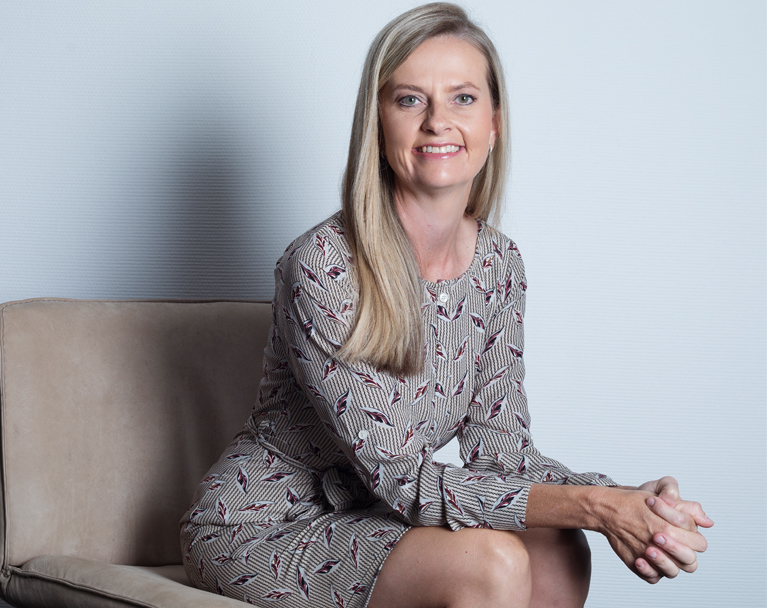
We look for enterprise development opportunities to maximise the impact in one area. It’s much better than having dispersed initiatives scattered all over the place. Touws River has certainly been an incredible case study- where you combine a commercial asset, with developing the surrounding community for significantly more impact.
Everything from the growing medium to water usage is sustainable. It also provides fresh veg to the town, including schools, which is helping to address the hunger crisis. The project's success has also prompted locals to start growing their own veggies to become more self-sufficient.
Mthembi echoes her sentiment, “We see the Touwsrivier Commercial Hydroponics Farm (TCHF) as a blueprint to build public-private infrastructure partnerships in other sectors and a model for tackling the unemployment crisis,” concludes Mthembi.
“We see the TCHF as the blueprint to build public-private infrastructure partnerships in other sectors and a model for tackling the unemployment crisis,” concludes Mthembi.
Receive Focus insights straight to your inbox




